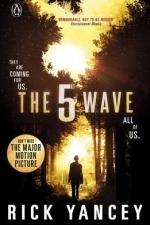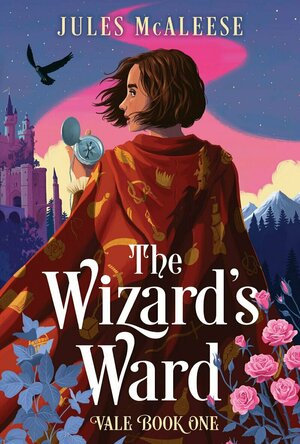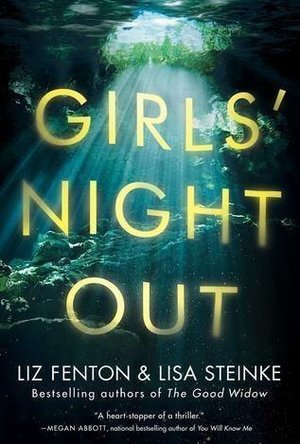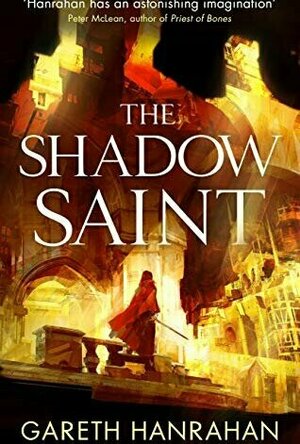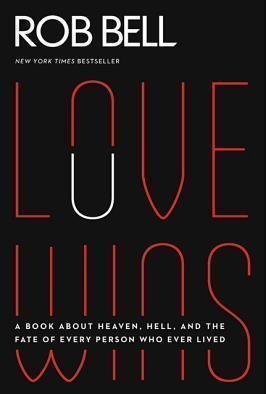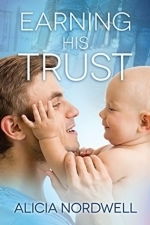Sophia (Bookwyrming Thoughts) (530 KP) rated The 5th Wave: Book 1 in Books
Jan 23, 2020
I didn't even last thirty pages. <i>Thirty</i> pages, which says <i>a lot</i>, because while I may give up on books more often now, I don't usually give up THAT early.
The premise wasn't what made me give up reading <i>The 5th Wave</i> – characters trying to fight for survival? Sounds like <i>Hatchet</i>, only with the "aliens" attacking with "waves."
I only stopped because of Cassie. Cassie, short for Cassiopeia, the main character of the book. I couldn't stand her for the life of me.
She's materialistic – in a world when the world is literally falling apart around you, who <i>cares</i> about hygiene being top priority? It's great she cares (because you can't just walk to a job interview smelling like horse poop), but by the whatever wave that's past the first, I'm pretty sure you're too busy making surviving the <i>day</i> your priority.
She's rude – if there's one thing I don't like, it's texting while in a conversation simply because you're bored. Then, she says, "Oh, and in case you're an alien reading this? BITE ME."
Totally. I'm totally willing to bite Cassie... in a review, that is.
Basically, there was a vibe about her I didn't like early on. But with all of the flashbacks at literally every chapter, I not only got to know the world <i>before</i> the 1st Wave, I got to know Cassie as a person. And Cassie probably tops the list of the most annoying characters I've ever come across in a book.
Someone please tell me I'm not the only one who couldn't stand Cassie. If I am, I'm willing to cry in a little corner alone with my lonesome self...
<a href="https://bookwyrmingthoughts.com/dnf-review-the-5th-wave-by-rick-yancey/"; target="_blank">This review was originally posted on Bookwyrming Thoughts</a>
Merissa (13782 KP) rated The Wizard's Ward (Vale #1) in Books
Aug 1, 2022 (Updated Aug 2, 2023)
We start off with her life in the castle, as a ward to the wizard - in case the title didn't give it away! We learn of her friendship with X, the son of one of the military leaders, who disappears one day without saying goodbye. We learn of her role (sort of) in the castle, with those she likes and loves, and those she loathes. When Billington (the wizard) disappears, Francis is determined to find him and sets out, with X's help. Along the way, they meet friend and foe, but no one seems to be as they appear.
This is a twisted and intriguing story that will keep you turning the pages. Francis is a strong character who faces situations head-on, even if she knows she is at a disadvantage. She doesn't sit back and wait to be rescued. Instead, she forges bonds with others and does her best to help, no matter the circumstances.
X is a character that I thoroughly enjoyed. He is complex and dark, and I can't wait to see where he goes next. How he was, was NOT what I was expecting, so I loved that it caught me unawares.
I personally wish we had more details about the Rottentoes. I can see Ezrah and Cornelia, but Puck and Darwin seem to fade together. Cora is also a character with a lot of depth.
There are parts of this story that are full of world- and character-building, but there are other parts that almost seem skimmed over. I would have loved to have known more about the world itself, the elves' kingdom, and the geography.
As a debut book, I thought this was off to a brilliant start. The story is there and with great characters. I look forward to reading more by this author and continuing with this saga. Recommended by me.
** same worded review will appear elsewhere **
* A copy of this book was provided to me with no requirements for a review. I voluntarily read this book, and the comments here are my honest opinion. *
Merissa
Archaeolibrarian - I Dig Good Books!
Jul 26, 2022
The nerdy birdie (67 KP) rated Girls' Night Out in Books
Jul 2, 2018
I MUST start off by saying that when I browse through Netgalley and choose which books I'd like to review I always go by the synopsis of the book and don't really pay attention to the cover or the author(s). I absolutely love a good thriller, so when I read what this book was about I couldn't hit the "request" button fast enough. When asked what appealed to me...I indicated the subject matter. How could I not relate to going on a trip with two of my best girlfriends? Sign me up! Then, since I am very new to this process, only joining as of May 30th, I was approved for a large amount of novels all at once and this one got lost somewhere in amongst the crowd. I read 15 books BEFORE this one, which would not have been the case had I taken a brief moment to contemplate where I had heard the two authors names Lisa Steinke & Liz Fenton before.
To continue on with my story...I was ready to select my next book to read last night and came across
" Girls' Night Out" somewhere in the middle of my shelf and thought to myself, " Awesome...Download!" It wasn't until I was flipping through the beginning pages ( you know, the ones that are usually passed by and disregarded until you find page 1 or " prologue.") when I saw other books listed by these co-authors. There in plain sight was " The Status of All Things," one of my favorite books of all time! My review of this book clearly indicates " definitely in my top 20 books of all time" and it's categorized in my favorites folder on goodreads! Total fan-girl moment!!!!! Kate was one of my favorite characters, I saw so much of myself in her! So...before I review this new book I must also insist that if you're reading this to please also pick up their other book " The Status of All Things" which I have already recommended to every single one of my friends. It is about a girl in her thirties that is obsessed with social media ( who isn't?) who is able to keep changing her life & the lives of those around her based on her Facebook status updates! It reminds me of Lauren Oliver's "Before I Fall" meets "The Butterfly Effect" movie. End rant, sorry! But read it ?
Now onto my review of " A Girls' Night Out!" Whew! The suspense was almost too much to bear in this one! Just imagine...you go on a much needed vaca to a beautiful island with two of your best girl friends and one of them disappears!!! Yes, you wake up and she's gone..one friend can't remember because she was so intoxicated and the other basically left her to fend for herself and went home with some random bartender. Which one would you rather be? The missing? The drunk? The sexaholic? Not very good friends if you ask me.
I started reading around 9 pm and read for so long that I fell asleep with my kindle on my face, woke up at 4 am and read some more, and couldn't put it down all day today! I ate breakfast, lunch and dinner all the while flip, flip, flipping through the pages and devouring every word! It was like this book was my oxygen and I needed it to survive.
I had myself talked into various scenarios because I so desperately wanted to figure out what was going on! At one point I thought that Marco was a setup from the beginning, a plant to take Ashley away and cause problems for her marriage. Payback time? Then I thought that Lauren had drugged Natalie and done something to Ashley herself. I also thought that Ben, Jason & Natalie were in on something together against Ashley because they all wanted the money from the business. I also thought Marco wasn't even real and maybe someone that both girls made up to get away with murder! Man does my head hurt! This book gave me whiplash ?? I won't give away any spoilers or endings but what I will say is that when they showed up at the morgue to identify the body my heart was pounding like I was right there with them. Please don't let it be her.
How can these two best friends perfect two completely different genres? I don't know, but they did! A great team! Can't wait to read ALL of their other books! Another one to add to my favorites shelf.
Ross (3284 KP) rated The Shadow Saint in Books
Mar 23, 2020
I wanted to love this book. I would have been happy liking it. In reality, I tolerated it.
The sequel to The Gutter Prayer takes us on a different journey, with initially very little familiar ground and people. Over time the story reflects more of the world that was covered in the first book, but it is quite a strange and unnerving start to a sequel.
The narrative follows two new characters, one a spy for a foreign country with numerous personalities at his fingertips, the other a minor noble from another country. Both find themselves in Guerdon, the scene of the first book, the city that has been mostly sheltered from the atrocities of the Godwar. Here we also are reunited with Eladora, the young historian with a hint of magic abilities.
This sees a number of new countries, Gods, races and magic introduced that were not in the first book. While one always expects something new, some of these were fairly major and important aspects of the world and should have been in the first book. For me it just came across as a late decision to write a second book and reluctantly start changing and expanding the world.
The plot is a little flimsy if I'm honest, it is just some people doing some things and then deciding to do other things, with seemingly little logic to it, or overall plot. It was quite a struggle to remember who was doing what and why when switching between PoVs in new chapters. This isn't helped by the number of new characters introduced being largely interchangeable, especially during the minor noble's story (there was one fairly important plot point late in the book where someone he had met turns out to be someone important - I couldn't remember him at all!).
The writing style is a little elaborate for my tastes and made it hard to focus on what was actually happening - there were times an event had been referred to but I hadn't even noticed it because I wasn't able to concentrate. The book is very heavy on narrative with very little dialogue, making it harder to follow the action among the flowery phrasing.
A book of this length should have taken me a little over a week to read, but this took me almost 4 weeks. Admittedly part of this was due to events in the world and at work, but also my motivation to read it was eroded and I struggled through about 5% a day.

BiP Messenger
Social Networking and Entertainment
App
BiP is a communication application that is even more beautiful than the GSM operator and used by the...
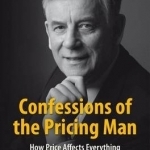
Confessions of the Pricing Man: How Price Affects Everything: 2015
Book
The world's foremost expert on pricing strategy shows how this mysterious process works and how to...

iWedPlanner - The Wedding Planner
Lifestyle and Productivity
App
Planning a wedding can take time. No two weddings should be alike because everyone has a different...

Natural Cycles, Birth Control
Health & Fitness and Medical
App
Natural Cycles helps you keep track of your ovulation, period and fertility. The app will show you...
There are a few major errors in Love Wins, which leads to his making other more minor mistakes. The first error is giving precedence to certain biblical themes (to the exclusion of others) over clear and specific biblical teaching. Bell makes much of themes like restoration in Scripture, but ignores themes of final punishment. By dwelling on those themes, he can transition to reading them into texts where they don't belong without being found out by biblical illiterates, such as Jesus' claim that Sodom and Gomorrah will fare better on the day of judgement than cities which rejected the direct revelation of God in Jesus Christ. Instead of reading this in its obvious sense-- that there are degrees of punishment on the final day and those who reject direct revelation of Jesus will suffer most-- he understands Jesus to be saying that there is a great deal of hope for Sodom and Gomorrah's salvation-- that their punishment was corrective instead of destructive. Even though he doesn't get anywhere close to proving his case (certainly only God knows whether or not some in Sodom will be saved, but the story of Abraham bargaining would suggest otherwise), he seems to fall back on the emotionally-driven claim that God saving everyone is a "better story" than damning some and saving others.
On his overuse of the word "story," it is one example where Bell is obnoxiously post-modern and emergent. He uses the word "story/stories" in his short book 138 times. For a book of around 200 pages, large font, and constantly skipped lines/single words on their own lines*, that's an impressive display of post-modernism.
Another major error is that he conflates a strong exclusivism with eternal conscious punishment which has the effect that when he attacks one, he is in effect attacking the other, making his job easier. In addition, he ignores annihilationism as an alternative to eternal conscious torment, which also strengthens the emotional pull of his position, since it is contrasted with an eternal conscious punishment where God damns people for never being able to hear the name of Jesus. (note: while I am annoyed at Bell's misrepresentations of eternal conscious torment, I am myself an annihilationist)
Bell explains that God will eventually win everyone over, but it must be of their accord. However, he doesn't explain how it is that everyone will be saved of their own free will. For emotional effect, Bell criticizes the eternal conscious hell camp with having a God that would turn his back on people in hell who are repenting and turning to God. Of course, this assumes that sinners turn to God on their own instead of by His grace. Bell here appears to be a Pelagian, or else doesn't know enough about soteriology to make such distinctions (a terrifying prospect for a Pastor). In any case, this is another example where he is misrepresenting eternal conscious hell proponents (the first I mentioned was when he claimed they were all strict exclusivists), which makes his book far harder to take seriously.
One strange and interesting point that Rob Bell makes comes from making the afterlife analogous to the parable of the prodigal son. He claims that hell is not being cast out of "the party," (despite Jesus' parable about the marriage supper being like a party where people are cast out of) but being at the party but not enjoying it. "Hell is being at the party," Bell claims. The message to take from that is never go to one of Rob Bell's parties.
*Bell's book is filled with skipped lines and one word sentences sitting on their own lines. I suppose this is done for dramatic effect-- indicating places where Bell would pause if this were one of his Nooma videos. However, it tends to just look irritating and faux artsy. I mostly listened to the book on Kindle's text-to-speech feature, and I could still tell when he was doing it. Like,
You put a series of short sentences on their own lines to make a point?
Really?
You do that?
And it's repetitive?
Extremely?
And annoying?
Merissa (13782 KP) rated Earning His Trust in Books
Sep 28, 2017
This was a great second chance novel that gives a lot detail in some area, but not so much in others. There is no explanation of why Ben disappeared without a trace, apart from he didn't think it would work. There's no explanation of how Daniel died, apart from he go shot. And Evin quickly decides to let Ben in, which came as a bit of a surprise given how much he had been hurt in the past.
Still, overall, this was a very good story, that kept my attention throughout. There were no editing or grammatical errors that disrupted my reading flow. I would recommend this book.
* A copy of this book was provided to me with no requirements for a review. I voluntarily read this book, and my comments here are my honest opinion. *
Merissa
Archaeolibrarian - I Dig Good Books!
